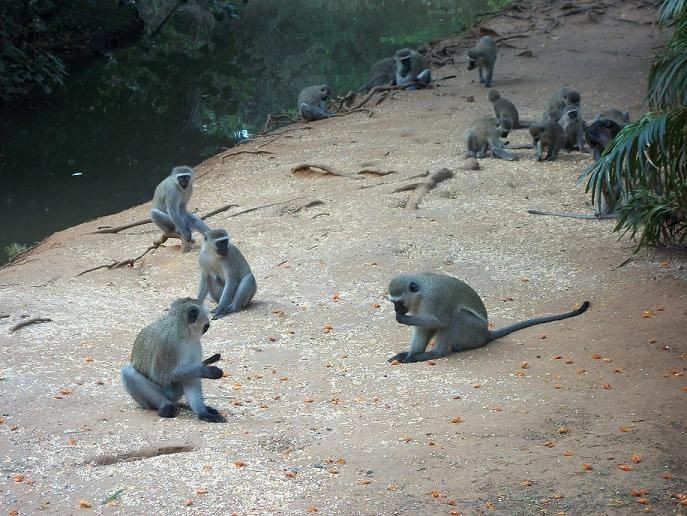Trendy Monkeys: Vervet Monkeys Adapt Well To Social Cues

The ability to socially adapt to different cultures and environments has long been assumed a trait associated only to humans.
A new study claims a particular species of monkeys has displayed a trait similar to humans in assimilating to their surroundings.
Andrew Whiten, lead researcher from the University of St. Andrews in Scotland, along with his colleagues tracked these behaviors in wild South African Vervet monkeys.
"Although our behavior is very distinctive, it didn't appear from nowhere - it has some very ancient roots," Whiten told NBC News.
"We are the cultural species par excellence on the planet, but that didn't come out of the blue. We share some of that - that wanting to learn from others - with our primate relatives as well, and larger groups of mammals and maybe birds."
Monkeys were trained to be partial to either blue-dyed corn or pink-eyed corn and hate the opposite color. After each test group was accustomed to only one of the colored pieces of corn, both groups were introduced to each other with colors of corn.
Two containers were filled with either the pink corn or the blue corn and all the test subjects were brought into a new location. When the monkey's conditioned to like pink corn saw others eating blue corn they felt comfortable trying the colored corn they weren't accustomed to.
The group's findings dispute the assumption of many scientists who believe humans are the only species that learn from social changes.
The entire study was published Thursday in the journal Science.



























